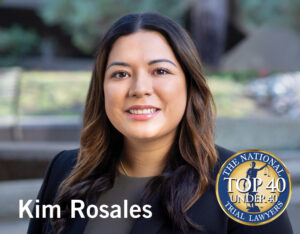Pharmaceutical companies commit fraud when they market their drugs for uses that have not been approved by the FDA.
Another type of misconduct that occurs far too often involves a drug company’s “off-label” marketing of its products. Before a drug is approved under the Food, Drug and Cosmetic Act, a company must apply to the FDA and disclose all the intended uses of the medication.
It is illegal for a drug maker to promote or market its pharmaceuticals for an “off-label” use — any use not precisely described in the drug application and given approval by the FDA. If a manufacturer violates the Food, Drug and Cosmetic Act in this manner, it also runs afoul of the federal False Claims Act.
Examples of improper off-label marketing include:
- American drug maker Pfizer Inc. and its subsidiary, Pharmacia & Upjohn Company Inc., agreed to a record-breaking settlement to resolve criminal and civil charges that the two illegally marketed Bextra, an anti-inflammatory medication pulled from the shelves by Pfizer in 2005 because of the drug’s health risks. The settlement also put to rest False Claims Act allegations involving the marketing of Bextra and three other drugs. Pharmacia & Upjohn actively promoted Bextra for numerous “off-label” uses that the FDA would not approve precisely because of identified safety concerns.
- The False Claims Act violations were originally disclosed in whistleblower lawsuits filed in three states, alleging that the company illegally promoted Bextra and three of its other drugs – Geodon, an anti-psychotic drug; Zyvox, an antibiotic; and Lyrica, an anti-epileptic medication. Pfizer then allegedly sought payment from government health care programs, even though the drugs were sold to treat problems for which they had not been approved.
- The government also claimed that Pfizer made illegal kickbacks to health care providers to encourage them to prescribe the company’s drugs for off-label uses.
- The Warner-Lambert unit of Pfizer Inc., which manufactures the epilepsy medicine Neurontin, has been named in over 1,000 lawsuits for allegedly promoting Neurontin for off-label uses not approved by the U.S. Food and Drug Administration.
- In the first of the suits to reach trial, a former Pfizer employee testified in federal court that the company had instructed him to promote the epilepsy medication for thirteen off-label medical conditions in an effort to increase profits.
- Earlier, in 1997, a former Warner-Lambert employee had filed a False Claims Act suit that exposed the company’s scheme to illegally market Neurontin for a number of unapproved uses, including attention deficit disorder.
- In a lawsuit filed by two whistleblowers, pharmaceutical companies Scios, Inc. and Johnson & Johnson, Inc., were alleged to have marketed Natrecor, a heart medication, for off-label use. The whistleblowers were former sales managers for Scios.
- While the FDA has approved Natrecor solely for use in cases of advanced congestive heart failure, the companies allegedly promoted use of the drug in cases that were not advanced. Further study showed the drug to have no significant benefit in such cases.
- The companies are also alleged to have made false claims against Medicare and other federal health care programs for the off-label use of Natrecor.
- U.S. pharmaceutical company Cephalon Inc. agreed to pay very stiff criminal and civil penalties to settle charges related to illegal marketing of its drugs. Three of the company’s drugs — Actiq, a painkiller; Gabitril, used to treat epilepsy; Provigil, a sleep medication — were marketed for off-label use which had not been approved by the FDA.
- The investigation was initiated when four different False Claims Act lawsuits were filed by whistleblowers, three of whom had worked for the company as sales representatives.
- Forest Laboratories and Forest Pharmaceuticals, Inc. were charged with illegally marketing Lexapro and Celexa for off-label use in children when the drugs had been approved for use only with adults. The companies were also accused of paying kickbacks to doctors and ghostwriting an article positively reporting the benefits of the companies’ drugs.
- Two False Claims Act lawsuits were filed against the company, initiating the government’s investigation. The lawsuits were filed by whistleblowers Joseph Piacentile, MD. and a former Forest employee, Christopher Gobble.
- Eli Lilly & Co. pleaded guilty of marketing its antipsychotic drug Zyprexa for off-label use. The company also agreed to pay a record-breaking criminal fine for promoting Zyprexa to treat dementia in elderly patients. The drug had only been approved by the FDA for treatment of bipolar disorder and schizophrenia.
- While doctors are permitted to prescribe drugs for off-label use when they believe it is in the patient’s best interest, drug makers are not permitted to market their drugs for uses not approved by the FDA.
- The investigation was prompted by False Claims Act lawsuits filed by whistleblowers who had worked in the drug maker’s sales force.
Pharmaceutical companies have a financial incentive to boost sales by illegally marketing their products for off-label use.
Drug manufacturers are only allowed to market their products for uses that have been approved by the FDA. Drug makers are sometimes tempted, however, to boost their sales by promoting their drugs for unauthorized use. Whistleblowers who know of such illegal marketing can be vital in uncovering such fraud.




